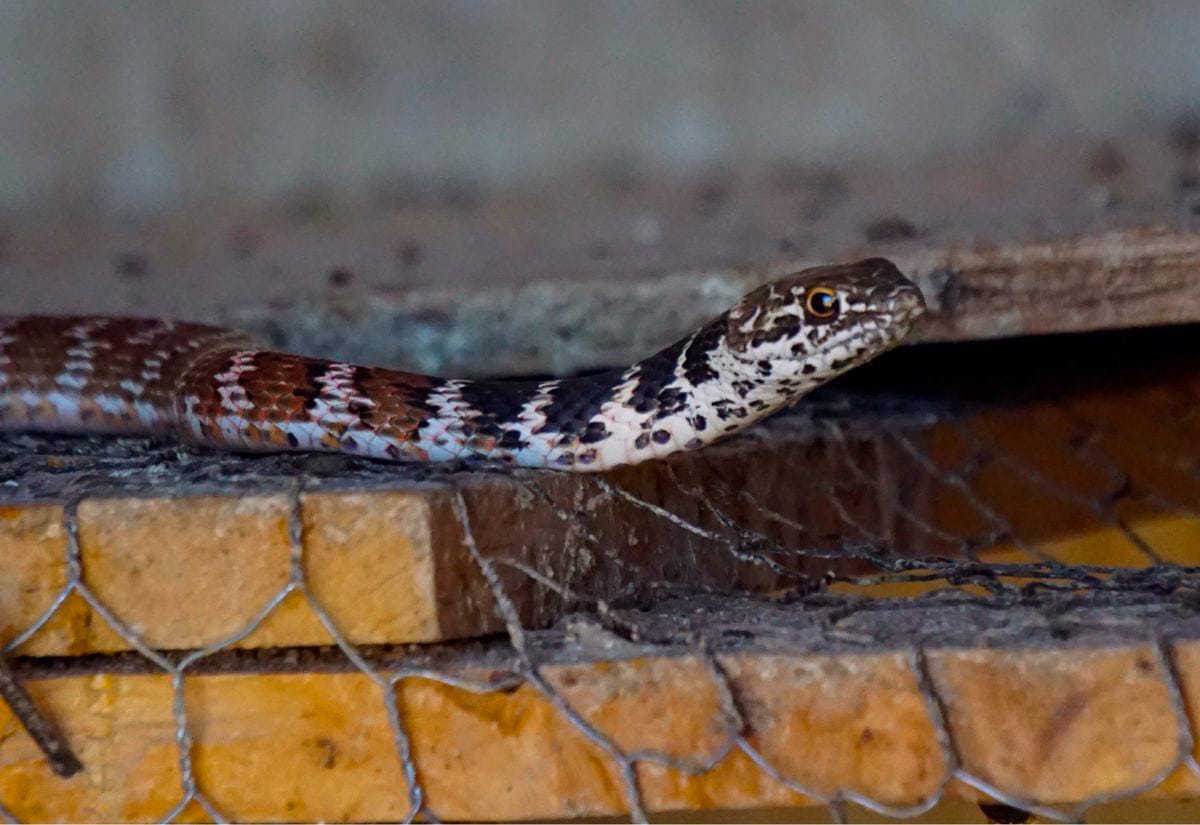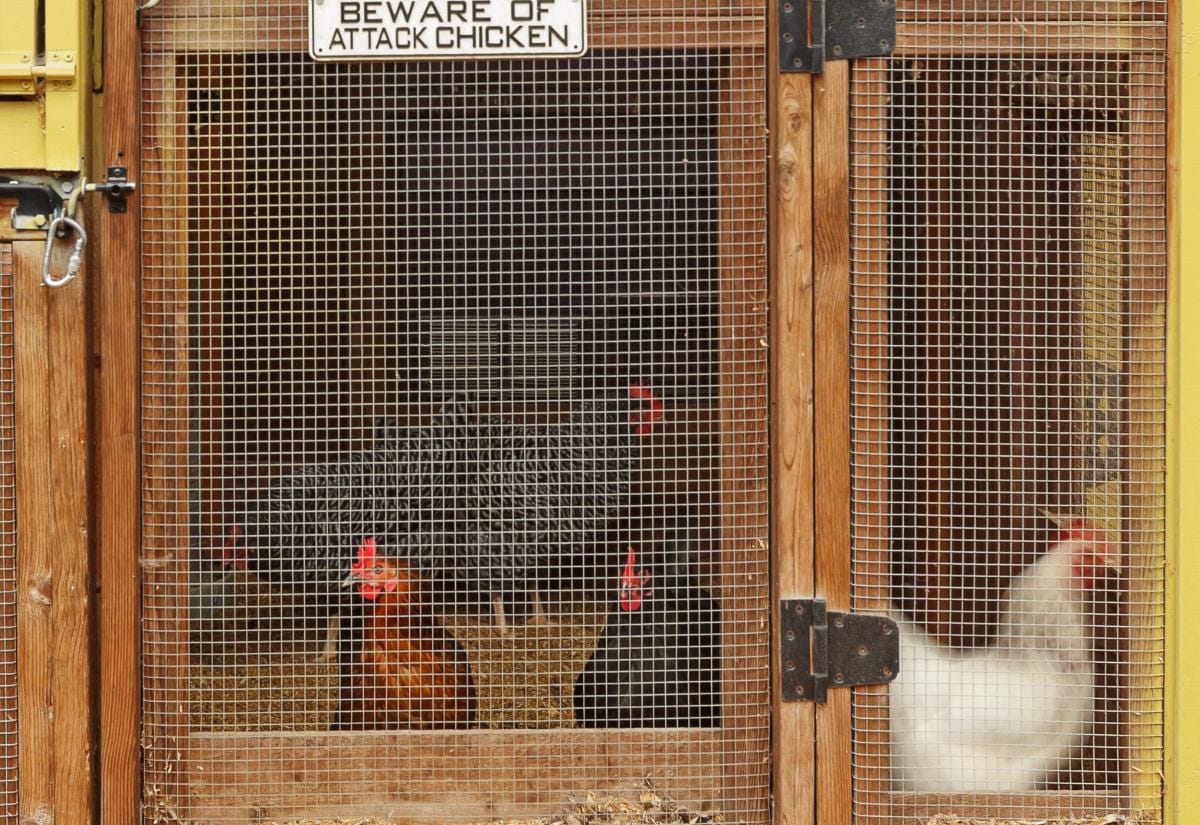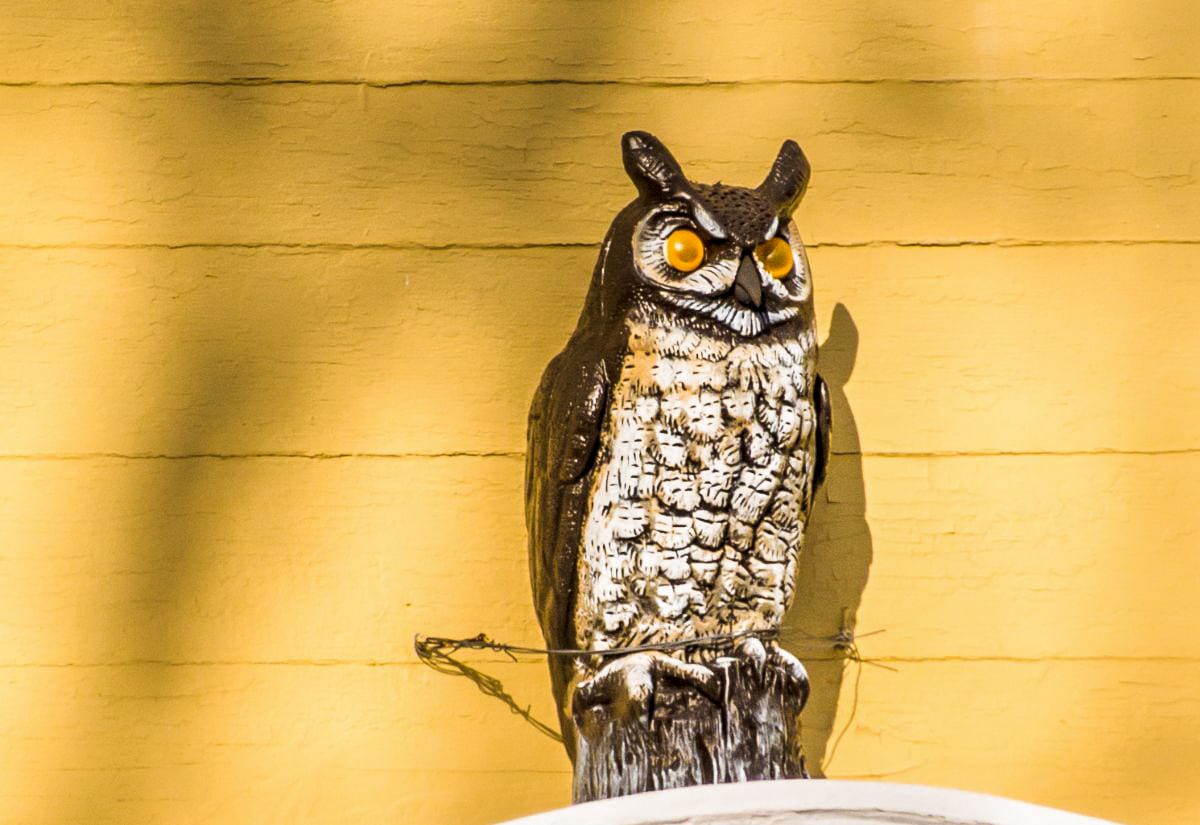The Best Way to Protect Chickens from Predators
Learn the best way to protect chickens from predators with practical coop, run, and fencing tips that actually work for backyard flocks.

When you hear ‘predators,’ you probably picture something dramatic. Bears, coyotes, maybe a velociraptor or two. But here’s the truth: the biggest threats to backyard chickens are the sneaky ones already living nearby. Raccoons, foxes, hawks, snakes (even the neighbor’s dog) can turn a peaceful coop into an all-you-can-eat buffet if you’re not paying attention.
After more than ten years of raising chickens here in Maine, I can tell you, it’s not about turning your coop into Fort Knox. It’s about working smarter, layering your defenses, and knowing what’s out there. Here’s how I predator-proof the coop, run, and perimeter, and how to outsmart even the shrewdest raccoon without losing sleep (or chickens).
What’s Trying to Get Your Chickens?
Depending on where you live, your chickens might face threats from:
- Raccoons and foxes (diggers and climbers)
- Coyotes and neighborhood dogs (strong and persistent)
- Weasels and skunks (small enough to squeeze through gaps)
- Hawks and owls (silent hunters from above)
- Snakes (after eggs and chicks more than adult hens)
- …and yes, sometimes humans
Different predators try different tactics. That’s why I use layers: safe coop at night, covered run by day, perimeter locked down.

How to Predator-Proof the Coop
The coop is where it all starts. If you only upgrade one thing, make it this.
Train Chickens to Roost Inside
If your birds have decided the porch is home, that’s a problem waiting to happen. Chickens are creatures of habit, so get them used to roosting inside from the start. With young birds, shoo them into the coop before dusk for a few nights. They’ll get the hang of it quick.
Once everyone’s in, lock it. Raccoons and opossums clock in at dusk.
Raise the Coop Off the Ground
Raise the coop 12–24 inches. It keeps snakes/rodents from nesting under there and gives you better airflow. Plus, I’ve found that even a few inches of height discourages critters from clawing or chewing their way in.
Cover Every Opening
Here’s where most people slip up. Chicken wire sounds like it would be right for your chickens, but it won’t actually protect your birds. It’s soft, it rusts fast, and a raccoon can tear through it like it’s nothing. Use ¼-inch hardware cloth for every window, vent, and gap larger than a pencil. Keep an eye on the edges. Wood shifts and rots, and critters test weak spots.

Use Latches a Raccoon Can’t Figure Out
If your latch is easy for you, it’s easy for a raccoon. Use spring-loaded barrel bolts, padlocks, or even carabiner-style clips. Use something that basically requires opposable thumbs to open. If you’ve ever had problems with two-legged predators (humans), a simple padlock adds peace of mind.
If you’re just getting started with chickens, this beginner’s guide on how to care for laying hens covers the basics of housing, feeding, and coop setup.
How to Reinforce the Run
Even a strong coop won’t help much if your chickens spend their days in a weak run.
Use Strong Fencing
Skip anything labeled “chicken wire.” It keeps chickens in, but doesn’t keep predators out. Instead, use welded wire or heavy-duty hardware cloth with openings no larger than ½ inch. Electric poultry netting is a solid flexible option. I use it to rotate grazing and it’s kept out dogs and foxes for me.
Add a Top (Yes, Even if You Think You Don’t Need One)
Hawks and owls don’t make a sound until it’s too late. Cover your run with wire mesh, netting, or even a tarp. Anything that blocks access from above. It also keeps adventurous hens from flying out. If you have a few fliers in your flock, learn how to clip chicken wings safely so they stay grounded and protected.
Don’t Forget the Perimeter
Predators like foxes, coyotes, and even dogs often dig under fencing or chew at weak spots. Here’s how to block them before they start.
Bury Wire Around the Run
Bury hardware cloth about a foot deep or lay it flat in an L-shape around the edge of your run. That ‘predator apron’ keeps diggers out. I watched a fox give up after a few minutes. It works.
Add Motion Lights or Sprinklers
Lights and noise won’t fix a bad fence, but they do make most critters think twice. Solar-powered predator lights that look like eyes work surprisingly well, and motion sprinklers do a good job of scaring off the curious ones.
Use Scent and Sight Deterrents
Predator urine, reflective tape, and fake owls can help. Just move them around so nothing gets used to them. Animals get desensitized to them if they never move.

If you want to go a step further, you may want to look into choosing the best livestock guardian animal for your homestead. Sometimes four legs and a loud bark are your best defense.
If Something Still Gets In…
Even with the best setup, things happen. If you’ve lost birds, look for signs to identify the culprit:
- Missing heads or neck wounds? Likely a raccoon or weasel.
- Scattered feathers and missing hens? Think fox, coyote, or dog.
- Eggs gone but hens fine? Probably a snake or rat.
Once you know who’s sneaking in, fix the weak spot they used—tighter wire, deeper fencing, better latches, or motion lights aimed right where they came through. If you live near woods or fields, these extra strategies for safeguarding livestock against common Maine predators will help keep all your animals secure year-round.
Common Questions About Keeping Predators Out
Still worried about something getting in? Here are the questions I hear most.
Don’t let the raccoons win! Save this post to your chicken care board so it’s there when you need it.

You’ve put time, care, and probably a fair bit of money into your backyard chickens. Don’t let one raccoon undo it overnight.
The best way to protect chickens from predators isn’t about spending thousands or overcomplicating things. It all comes down to consistency. Lock up at dusk, do a quick weekly check, and think like the thing trying to get in. What would you try to get into if you were desperate?
It’s small habits, over and over. That’s what keeps birds safe. And trust me, walking out each morning to a safe, happy flock is worth every bit of the effort.

Check out the Chickcozy auto door, it looks different https://www.chickcozy.com/
If the run and coop are predator proof, is it safe to just lock the chickens in the attached run with the coop door open? Or would you have the coop door locked? And if so, would you keep food and water in the coop, and not just the run?
Sound advice. You might like to check out our Automatic Chicken Coop Door Opener – http://www.ChickenGuard.com. It might help with opening and closing the coop.
lots of good ideas-thanks